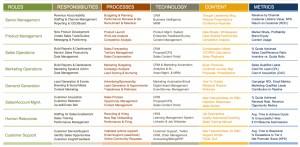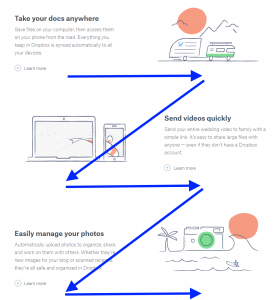So, you’re launching a SEO campaign and you’ve got keywords coming out of your – everywhere?
Looking to blast out tons of content but still stuffing your articles with as many keywords?
Well, this isn’t 2013 anymore – so stop it!
Today, SEO is about creating a truly meaningful experience for your users.
This means creating valuable pieces of content that cater directly to your target audience and exist for a reason beyond SEO.
SEO is not a super complicated topic that’s only reserved for techies – it’s actually an important part of any company’s growth strategy. It also goes hand-in-hand with PR.
“As SEO is a long-term strategy, we’re able to educate people more that it’s not some magic button we press and that we need to work alongside with all the other departments and help them keep SEO best practices in mind when making their own decisions.” Andrew Ly, a Toronto SEO specialist, says.
How Has SEO Changed?
In 2018, the term SEO should be synonymous with quality.
Instead of employing shady black-hat SEO tactics to boost rankings, business owners should be focused on creating a memorable, signature experience that keeps users coming back and sharing it with others.
That’s what Google wants to see.
Google doesn’t want to reward websites for pumping out lacklustre content with a bunch of keyword steroids; it wants to reward websites that actually have something to say.
Don’t rely on old SEO techniques.
Google is constantly tinkering with its algorithm so that websites that users only spend five seconds on will go further down in the results page.
“SEO has undergone a big shift in recent years. Moving away from single page keyword optimization, we are now focusing on mapping out content topics to satisfy search intent. Engagement factors such as bounce rate, time on page, and visits are ideal indicators of how happy a user is with a search result and are considered the new backlinks,” Stefani Wirth, SEO Specialist at Manulife, says. “In essence, brands who want to succeed in SEO need to put themselves in their customers’ shoes and optimize the user journey from start to finish.”
Why Are Backlinks So Important For SEO?
News flash: backlinks matters when it comes to SEO.
Google rewards websites if they have a link posted on a high-quality site, such as a new organization, academic institution or that super popular recipe website that you click on every five seconds when you’re bored at work.
These sites carry weight in their industry. This means getting them to link back to your website will show Google you’re a trusted content developer and you deserve a higher place in their search rankings.
“Relevant and authoritative links (like .edu, .org, etc.) tend to carry more weight with Google than links from non-relevant and/or newer sites,” Ray Litvak of Writing Web Worlds Inc. says. “It’s all about trust and reputation. Organizations that are trusted and reputable can move the SEO needle if you’re able to get them to link back to your site. This is another case of quality trumping quantity.”
Using PR To Boost Your SEO
Let’s say that many people agree that backlinks are a big part of SEO.
Not just any backlink – but high-quality, contextual backlinks from reputable sources.
Okay, so now let’s say you want as many high-quality backlinks as possible.
If only there was someone who reached out to top-tier publications with great content ideas on a daily basis…
Oh wait, that’s public relations 😉
Paul Teitelman, from PaulTeitelman.com, a SEO and link building company based in Toronto knows this well. “SEO and link building continues to evolve and consistently change,” Teitelman says. “Companies need to focus on creating truly unique and engaging content and building relationships with bloggers and publications in order to distribute that content and earn backlinks.”
The best way to do this is with a strong PR strategy.
Fostering relationships with high-profile websites, blogs, and new outlets and getting them to link to your site is like getting asked to the prom. Your website will see a major spike in traffic because those top-tier websites get a lot of eyeballs, but also because Google will recognize your site as one of the most popular kids in school.
“The more newsworthy you make your company, the more coverage you’ll get. And coverage is important because it earns the kind of credibility that advertising just can’t buy,” Dr. Robert Brown Farley of BroFarOps SEO shares. “Your goals should be uniqueness, timeliness and top-of-the-mind.”
Advice for Business Owners Looking to Improve Their SEO
Ok – maybe it’s obvious.
Yes – SEO has changed to focus more on quality.
Yes – Backlinks are still important to SEO.
Yes – PR is a great way to garner contextual, high-quality backlinks to your site.
But how do you get started?
Here are a few tips from Remi Turcotte, owner & CEO of Turko:
1. Read the SEO Guides Out There (For i.e. Google’s official SEO guide)
Google is taking the guesswork out of SEO by telling companies exactly what they want to see. You might want to look it over.
2. Engage with Different SEO Communities (For i.e. Moz, Reddit/SEO, Facebook groups, etc.)
Who knew that there are so many professionals out there that live and breathe SEO? Don’t be scared, talk to them. You just might learn something!
3. Get Onsite SEO Right
If you’re looking at Google’s SEO guidelines, you might as well use them. Make sure everyone on your team is up-to-date on the latest changes to Google’s algorithms.
4. Develop and Leverage Relationships to Increase the Number of Quality Links to Web Assets.
Start reaching out to writers, journalists, influencers, bloggers, and other high-profile individuals that will validate your site’s content. Of course, no one is going to link to your site unless you have something truly awesome – so make sure you have something to share!
Digital & Social Articles on Business 2 Community(30)








